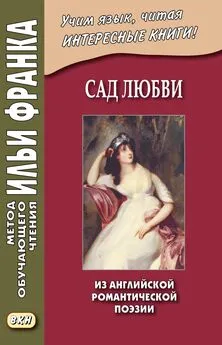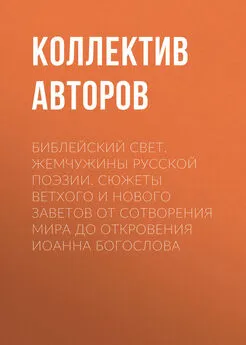Коллектив авторов - Сад любви. Из английской романтической поэзии [litres (Метод обучающего чтения Ильи Франка)]
- Название:Сад любви. Из английской романтической поэзии [litres (Метод обучающего чтения Ильи Франка)]
- Автор:
- Жанр:
- Издательство:Литагент ИЗДАТЕЛЬСКИЙ ДОМ ВКН
- Год:2015
- Город:Москва
- ISBN:978-5-7873-0859-4
- Рейтинг:
- Избранное:Добавить в избранное
-
Отзывы:
-
Ваша оценка:
Коллектив авторов - Сад любви. Из английской романтической поэзии [litres (Метод обучающего чтения Ильи Франка)] краткое содержание
Пособие способствует эффективному освоению языка, может служить дополнением к учебной программе. Предназначено для широкого круга лиц, изучающих английский язык и интересующихся культурой Англии.
Сад любви. Из английской романтической поэзии [litres (Метод обучающего чтения Ильи Франка)] - читать онлайн бесплатно ознакомительный отрывок
Интервал:
Закладка:
Of thy happy strain(твоего счастливого напева)?
What fields, or waves, or mountains(какие поля, или волны, или горы)?
What shapes of sky or plain(какие формы неба или долины)?
What love of thine own kind? what ignorance of pain?(какая любовь к твоему собственному роду? какое незнание боли?; kind [kaɪnd] – род, племя; ignorance ['ɪɡn(ə)r(ə)n(t)s] – неведение, незнание )
With thy clear keen joyance(с твоей ясной пронзительной радостью; keen – острый; пылкий; глубокий, сильный /о чувствах или ощущениях/; joyance ['dʒɔɪəns] – радость, радостное чувство; веселость )
Languor cannot be(не может быть печали; languor ['læŋɡə] – томность; слабость, вялость; апатия ) :
Shadow of annoyance(тень раздражения; annoyance [ə'nɔɪəns] – досада; раздражение; to annoy [ə'nɔɪ] – раздражать, сердить; досаждать )
Never came near thee(никогда не приближалась: «не подходила близко» к тебе) :
Thou lovest, but ne’er knew love’s sad satiety(ты любишь, но никогда не знал печального пресыщения любовью; satiety [sə'taɪətɪ] – насыщение, сытость; пресыщение, пресыщенность ).
Waking or asleep(бодрствуя или во сне),
Thou of death must deem(ты о смерти должен думать; to deem – полагать, считать )
Things more true and deep(вещи более правдивые и глубокие)
Than we mortals dream(чем те, о которых мы, смертные, видим во сне),
Or how could thy notes flow in such a crystal stream(или = иначе как твои напевы/звуки могли бы течь в таком кристальном потоке)?
We look before and after(мы смотрим вперед и назад),
And pine for what is not(и тоскуем по тому, чего нет) :
Our sincerest laughter(наш искреннейший смех; sincere [sɪn'sɪə] – искренний, чистосердечный )
With some pain is fraught(некоторой болью преисполнен; fraught [frɔ:t] – нагруженный; полный, наполненный; преисполненный );
Our sweetest songs are those that tell of saddest thought(наши сладчайшие песни – те, которые рассказывают о печальнейших мыслях: «о печальнейшей мысли»).
Yet, if we could scorn(и все же, если бы мы могли презирать; to scorn – презирать; относиться с презрением, пренебрежением )
Hate and pride and fear(ненависть, и гордость, и страх),
If we were things born(если бы мы были существами: «вещами», рожденными)
Not to shed a tear(не проливать слез; to shed – проливать, лить /слезы, кровь/ ),
I know not how thy joy we ever should come near(я не знаю, как бы мы когда-либо приблизились: «подошли близко» к твоей радости).
Better than all measures(лучше, чем все размеры; measure ['meʒə] – мера, размер; /муз./ такт; размер; мелодия, музыкальная тема )
Of delightful sound(очаровательного звука),
Better than all treasures(лучше, чем все сокровища; treasure ['treʒə] – сокровище; клад )
That in books are found(что находят: «что есть найдены» в книгах),
Thy skill to poet were, thou scorner of the ground(твое искусство было бы поэту, ты, презирающий землю; ground [ɡraʋnd] – земля; грунт, почва )!
Teach me half the gladness(научи меня половине /той/ радости)
That thy brain must know(что твой мозг должен знать);
Such harmonious madness(столь гармоничное безумие; harmonious [hɑ:'məʋnɪəs] – гармоничный )
From my lips would flow(с моих губ полилось бы),
The world should listen then, as I am listening now(мир бы слушал тогда /так же/, как я слушаю сейчас)!
Hail to thee, blithe Spirit!
Bird thou never wert,
That from Heaven, or near it,
Pourest thy full heart
In profuse strains of unpremeditated art.
Higher still and higher
From the earth thou springest
Like a cloud of fire;
The blue deep thou wingest,
And singing still dost soar, and soaring ever singest.
In the golden lightning
Of the sunken sun
O’er which clouds are bright’ning,
Thou dost float and run,
Like an unbodied joy whose race is just begun.
The pale purple even
Melts around thy flight;
Like a star of Heaven
In the broad daylight
Thou art unseen, but yet I hear thy shrill delight:
Keen as are the arrows
Of that silver sphere,
Whose intense lamp narrows
In the white dawn clear
Until we hardly see – we feel that it is there.
All the earth and air
With thy voice is loud.
As, when night is bare,
From one lonely cloud
The moon rains out her beams, and heaven is overflowed.
What thou art we know not;
What is most like thee?
From rainbow clouds there flow not
Drops so bright to see
As from thy presence showers a rain of melody.
Like a poet hidden
In the light of thought,
Singing hymns unbidden,
Till the world is wrought
To sympathy with hopes and fears it heeded not:
Like a high-born maiden
In a palace tower,
Soothing her love-laden
Soul in secret hour
With music sweet as love, which overflows her bower:
Like a glow-worm golden
In a dell of dew,
Scattering unbeholden
Its aerial hue
Among the flowers and grass, which screen it from the view:
Like a rose embowered
In its own green leaves,
By warm winds deflowered,
Till the scent it gives
Makes faint with too much sweet these heavy-wingèd thieves.
Sound of vernal showers
On the twinkling grass,
Rain-awakened flowers,
All that ever was
Joyous, and clear, and fresh, thy music doth surpass.
Teach us, sprite or bird,
What sweet thoughts are thine:
I have never heard
Praise of love or wine
That panted forth a flood of rapture so divine.
Chorus hymeneal
Or triumphal chaunt
Matched with thine, would be all
But an empty vaunt —
A thing wherein we feel there is some hidden want.
What objects are the fountains
Of thy happy strain?
What fields, or waves, or mountains?
What shapes of sky or plain?
What love of thine own kind? what ignorance of pain?
With thy clear keen joyance
Languor cannot be:
Shadow of annoyance
Never came near thee:
Thou lovest, but ne’er knew love’s sad satiety.
Waking or asleep,
Thou of death must deem
Things more true and deep
Than we mortals dream,
Or how could thy notes flow in such a crystal stream?
We look before and after,
And pine for what is not:
Our sincerest laughter
With some pain is fraught;
Our sweetest songs are those that tell of saddest thought.
Yet if we could scorn
Hate, and pride, and fear;
If we were things born
Not to shed a tear,
I know not how thy joy we ever should come near.
Better than all measures
Of delightful sound,
Better than all treasures
That in books are found,
Thy skill to poet were, thou scorner of the ground!
Teach me half the gladness
That thy brain must know,
Such harmonious madness
From my lips would flow
The world should listen then, as I am listening now!
ODE TO A NIGHTINGALE
(Ода соловью)
My heart aches(мое сердце болит; to ache [eɪk] – болеть, испытывать боль ) , and a drowsy numbness pains(и сонное оцепенение мучит; drowsy ['draʋzɪ] – засыпающий, дремлющий; сонный; навевающий сон, усыпляющий; numbness ['nʌmnəs] – оцепенение, неподвижность, нечувствительность; numb [nʌm] – окоченелый, окоченевший; онемелый, оцепенелый, неподвижный; to pain – причинять боль; мучить )
My sense(мое чувство = мои чувства восприятия) , as though of hemlock I had drunk(словно я испил цикуты; hemlock – болиголов /крапчатый/, цикута; наркотические препараты или яд, сделанные из болиголова ),
Or emptied some dull opiate to the drains(или осушил какое-то притупляющее снотворное до дна/до подонков; empty – пустой; to empty – опорожнять; осушать /стакан и т. п./; dull [dʌl] – тупой; вялый; тусклый; to dull – притуплять; делать вялым; opiate ['əʋpɪət] – наркотик, опиат; снотворное средство; успокоительное /любое лекарство, содержащее опий/; дурман, нечто, притупляющее разум, волю, сознание; to drain – осушать )
One minute past(минуту назад) , and Lethe-wards had sunk(и опустился /словно некое светило/ в сторону Леты; Lethe ['li:θɪ] – Лета /греч., миф./ река забвения в подземном царстве; – ward/s/ – /суф., образует прилагательные и наречия со значением направления движения или направленности в какую-либо сторону/ ) :
Читать дальшеИнтервал:
Закладка:
![Обложка книги Коллектив авторов - Сад любви. Из английской романтической поэзии [litres (Метод обучающего чтения Ильи Франка)]](/books/1082624/kollektiv-avtorov-sad-lyubvi-iz-anglijskoj-romanti.webp)
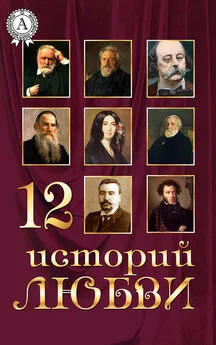
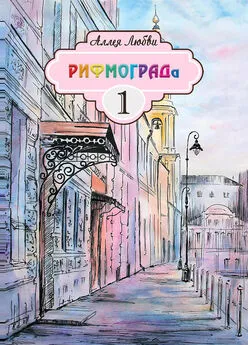
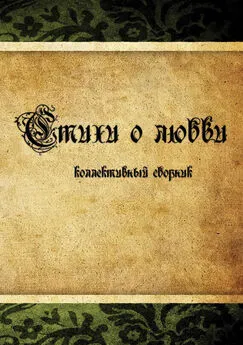
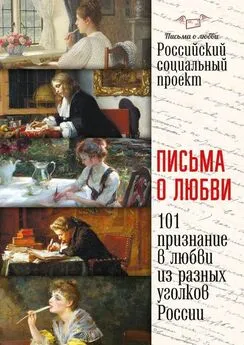
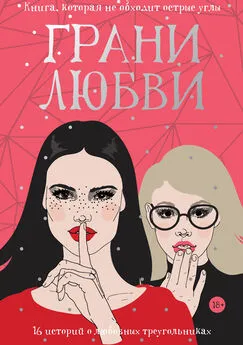
![Коллектив авторов - Мама на нуле. Путеводитель по родительскому выгоранию [litres]](/books/1072255/kollektiv-avtorov-mama-na-nule-putevoditel-po-ro.webp)
![Коллектив авторов - Политическая экономия Николая Зибера. Антология [litres]](/books/1142554/kollektiv-avtorov-politicheskaya-ekonomiya-nikolaya-zi.webp)
![Коллектив авторов - Ф. В. Булгарин – писатель, журналист, театральный критик [litres]](/books/1143258/kollektiv-avtorov-f-v-bulgarin-pisatel-zhurna.webp)
